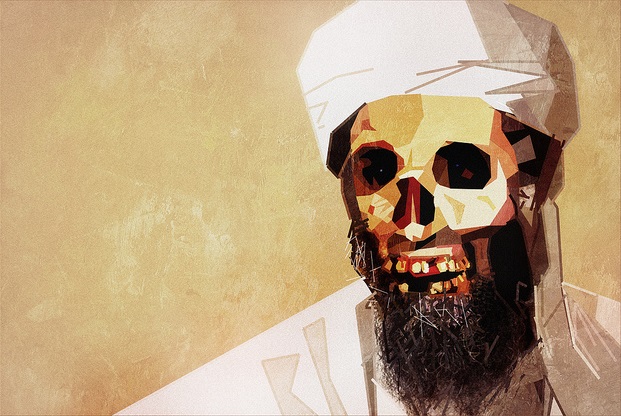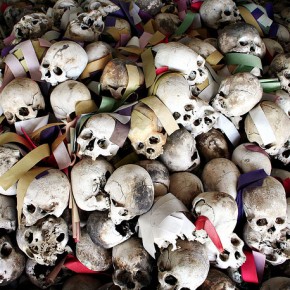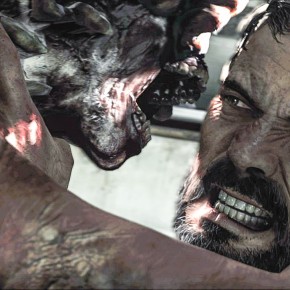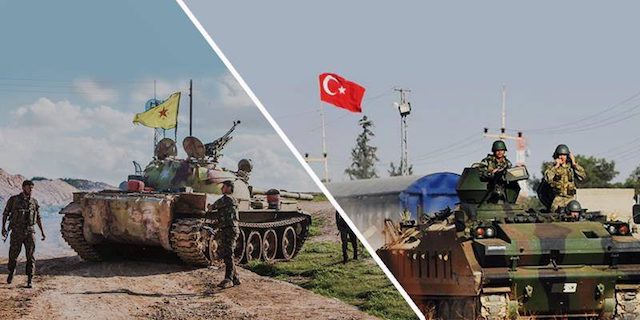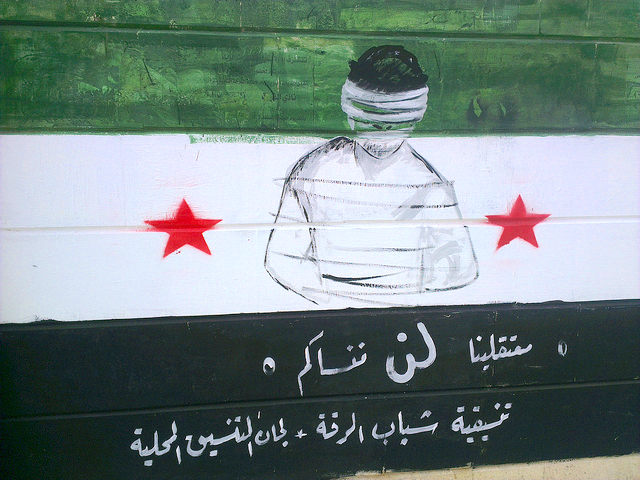When Navy SEALs killed Osama Bin Laden in his Abbotobad compound, they also seized a number of important documents. Among them were communications between senior members of al-Qaida, discussing everything from press releases to financial affairs. Some (not all) of these files were declassified, and seventeen were included in a study by the Combating Terrorism Centre at West Point. We should be skeptical about about their release, since the English translations are poor. What was the motivation behind their declassification?
Regardless, these documents offer many insights, including a window into inter-jihadist ideological conflicts that are usually ignored in mainstream analyses. The most fascinating is by far the question of what is acceptable violence. Although jihadists all agree that violence is necessary to achieve the goal of an Islamic state, there appears to be a remarkable amount of opinions about what that means. This is especially true when it comes to attacks that claim the lives of fellow Muslims, which account for the vast majority of jihadist killings during the War on Terror. Evidently, al-Qaida’s core leadership doesn’t find much of the violence perpetrated by its affiliates and allies, particularly al-Qaida in Iraq (which became ISIS) and the Pakistani Taliban, to be morally acceptable. One letter (named SOCOM-2012-4,) written by American convert Adam Gadahn, outlines many of these conflicts to an unknown correspondent.
Gadahn is a California native with mixed Jewish and Christian ancestry. Shortly after abandoning the surname “Pearlman,” he became a spokesman, media consultant, and public relations expert for al-Qaida. Much of the letter is actually spent addressing various requests and concerns that Bin Laden made in an earlier 21 October 2010 letter to Sheikh Mahmud (SOCOM-2012-15.) These concern mainly logistical matters, including al-Qaida’s press strategy for the tenth anniversary of 9/11. It gets interesting towards the end, when Gadahn makes a point of recommending that al-Qaida distance itself from both the Pakistani Taliban, and al-Qaida in Iraq (which boasted extremist agents that of eventually crossed over into Syria, and ultimately joined ISIS, now simply called “Islamic State.”)
Since he works in PR, Gadahn’s initial criticisms mainly deal with how al-Qaida will be perceived as a result of its affiliation with these parties. One of his main concerns is that their sheer brutality is alienating potential supporters. Bin Laden concurred. In a long letter to Sheikh Mahmud in May 2010, he expresses concern with the bloody errors made by regional jihadist groups that have killed thousands of Muslims (SOCOM-2012-19.) The al-Qaida chief appears grimly aware that al-Qaida has lost trust in the Muslim world as a result, and directs Sheikh Mahmud to centralize efforts in al-Qaida Command, with particular emphasis being placed on Yemen. The Arab Spring severely disrupted these plans, which became even more difficult to implement following Bin Laden’s death. It is unclear whether this would have even worked, either, since al-Qaida functions best when it is decentralized. Perhaps this move towards more centralized authority reflects just how much Bin Laden believed that the regional outfits needed to be put in line.
Gadahn’s arguments focus on the campaigns against Iraqi Christians, with particular annoyance at the fact that the Baghdad Catholic Church was attacked. According to Gadahn, not only did this drive away Muslim supporters. It also undercut planned outreach to Christian communities. This includes a scheme he apparently had to reach out to Irish Catholics, who he argues were particularly in need for “outside belonging” given Catholic sex scandals and the financial crisis. More broadly, it made it impossible to build solidarity with Arab Christians against Jews, Anglo-Saxon Protestants, and Orthodox Christians (it is implied that they would have had to convert first.) It’s clear that although Gadahn is clearly bigoted, and violent, he is also indignant at the fact that Iraqi Christians were made out to be the enemy instead of potential allies.

The rest of his grievances are far more abstract. They deal with how these fighters have strayed from an acceptable jihadist ideology, including its moral standards. Gadahn says several times that al-Qaida in Iraq, and the Pakistani Taliban, are “distorting” the image of “pious and loyal mujahideen,” and that they have “deviated from the path of shariah.” He brings up Iraqi Christians once again, saying that threatening them with death was “contrary to the promise of Islamic justice.” There is a reason that he repeatedly insults al-Qaida in Iraq, by referring to “the fictitious Iraqi Caliphate.” Simply put, Gadahn doesn’t believe that these fighters have a place in al-Qaida’s overall jihadist vision. It isn’t just that they are so vicious that they are unproductive. It is that they are so vicious that they are amoral, and have degraded the alternative ethical vision that he believes is at the core of Islamic militarism.
Here too, Gadahn is not alone. Apparently, on 3 December 2010, representatives Mahmud al-Hasan and Abu Yahya al-Libi sent a fierce letter to then-amir Hakimullah Mahsud of the Pakistani Taliban (SOCOM-2012-7.) Gadahn writes that al-Qaida Command had serious misgivings about the group’s ideology and tactics. It heavily criticized its operations, arguing that they are negatively impacting the way that militant groups are perceived everywhere. The letter comes down particularly hard on its use of indiscriminate violence, especially when it came to using suicide blasts against civilians, and also of its use of kidnapping. Mahsud himself was criticized for exceeding his authority as the group’s leader, but that seems to be more of a turf issue, since he is also skewered for referring to al-Qaida members as “guests.” It’s very clear in the letter that al-Hasan and al-Libi were mainly told to communicate that the Pakistani Taliban’s conduct was unacceptable.
Gadahn goes even further, saying that the group as a “black reputation,” and declaring an attack on a North Waziristani playground to be a “sin,” along with an explosion at the Islamic University of Islamabad. He is particularly disgusted with the group’s attacks on Pakistani mosques, listing a number of them before saying that “even Sheikh ‘Issa does not agree with blowing up Shi’a mosques, though he considers them infidels.” The drama of this statement is lost if you do not know that Sheikh Issa has been massively important in radicalizing Waziristani fighters, and is believed to have been the principle spiritual adviser for Egyptian Islamic Jihad. Apparently, even he has his limits (and this is a guy who, according to Gadahn, once plotted an attack on a Rawalpindi mosque where civilian and military officials were performing Eid prayers.)
The letter ends with Gadahn drafting a press statement that is meant to distance al-Qaida from this behavior by essentially condemning it as morally unacceptable (which, not surprisingly, is mainly supported by Qu’ran, Hadith, and references to Islamic traditions.) Although he does emphasize the benefit of raising this issuing for al-Qaida’s branding, he also warns his recipient on religious grounds as well. Evidently, during late 2010, and early 2011, many al-Qaida members shied away from criticizing the bloodier jihadists out of fear that signs of division would make al-Qaida seem weak overall. Gadahn has no patience for such an argument, explaining that dealing with the problem is a moral necessity.
“Those who advised him to delete that part, they argued that we should not admit that such acts were committed from within our ranks: that means we have to impose a media silence! And this is a mistake from many aspects. The matter is religious, a fatwa, and an order for virtue and a prevention of vice; not a simple (organizational secret) of the type that we may impose a media silence. Hiding the truth, and suppressing its necessary details, has strong religious implications, as is well known. Now that the matter is publicly known to everyone, near and far, our silence will lead to being despised by people, and also despising ourselves, as we all seem like “Mute Satans.” We see haram being committed, and make no move, or look like we are compromising and praising the killers while they are alive, and consoling them when they are dead, and counting them among the good-doers, irrespective of what we know about them when it comes to immorality.”
This is clearly more than an issue of how al-Qaida looks for Gadahn. Why else call their actions haram? He clearly finds their behavior religiously inexcusable, and it is the death of Muslims that is bothering him so deeply. Although it is still bewildering to see an al-Qaida member speak of immorality on these terms, it does make sense. Groups like al-Qaida in Iraq were violating what he understood Islamic militarism to mean, which is why he recommended breaking with them altogether. Especially when taking into account that he wasn’t alone, it makes sense that Ayman al-Zawahiri publicly split with ISIS three years later. Those tensions had been at play for quite a while.
It is difficult to extrapolate what this means in the long or even medium-term. Either first-generation jihadists, like those who fight for al-Qaida, will reassert themselves, or next-generation upstarts like Islamic State and the Pakistani Taliban will continue to forge their own path, and in the process, become more and more ideologically distinct from the organizations that nurtured them. This seems most likely with Islamic State, given its recent victories in northern Iraq (assuming it can hold them, which is doubtful.) What seems certain is that people like Gadahn will continue to misread exceedingly violent jihadists as “deviating from the path of shariah.” They’re not.
The idea of building an Islamic state through violence, which is at the core of jihadist groups, has never been that concrete. It is certainly a firmly-grounded idea for many people, who seek to strategically built the Caliphate. However for others, it is simply an excuse to kill people. While some jihadists genuinely do want to built an Islamic state, others are simply there for their own nihilistic reasons. They are reacting to intense socioeconomic crises through superstition, and making dogmatic claims about the world. As a result, they seek to purify the world through violence, and expunge its alleged impurities, in order to feel less estranged from it. Although their violence can alienate other jihadists, as Rania Abouzeid explored in regards to Syrian jihadists and ISIS, it is by no means extraordinary within the overall jihadi framework.
Gadahn is in complete denial if he thinks that there is an ethical standard in jihadist movements that is being violated by these people. They were always there. And they’ve always worked within the parameters of war (Battle of Algiers, anyone?) that al-Qaida legitimize for them. These letters betray that at its senior levels, al-Qaida is led by people who won’t take responsibility for the monsters they created. Their tone is of a group that created an entirely different way of doing things, and then realized that their creation had taken a life of its own, horrifyingly leaving them irrelevant. One has to wonder how the future of jihad will look if these trends continue. Is it al-Qaida versus Islamic State? And if one wins over the other, who will come to challenge them?
Photographs courtesy of Surian Soosay and thierry ehrmann. Published under a Creative Commons License.
